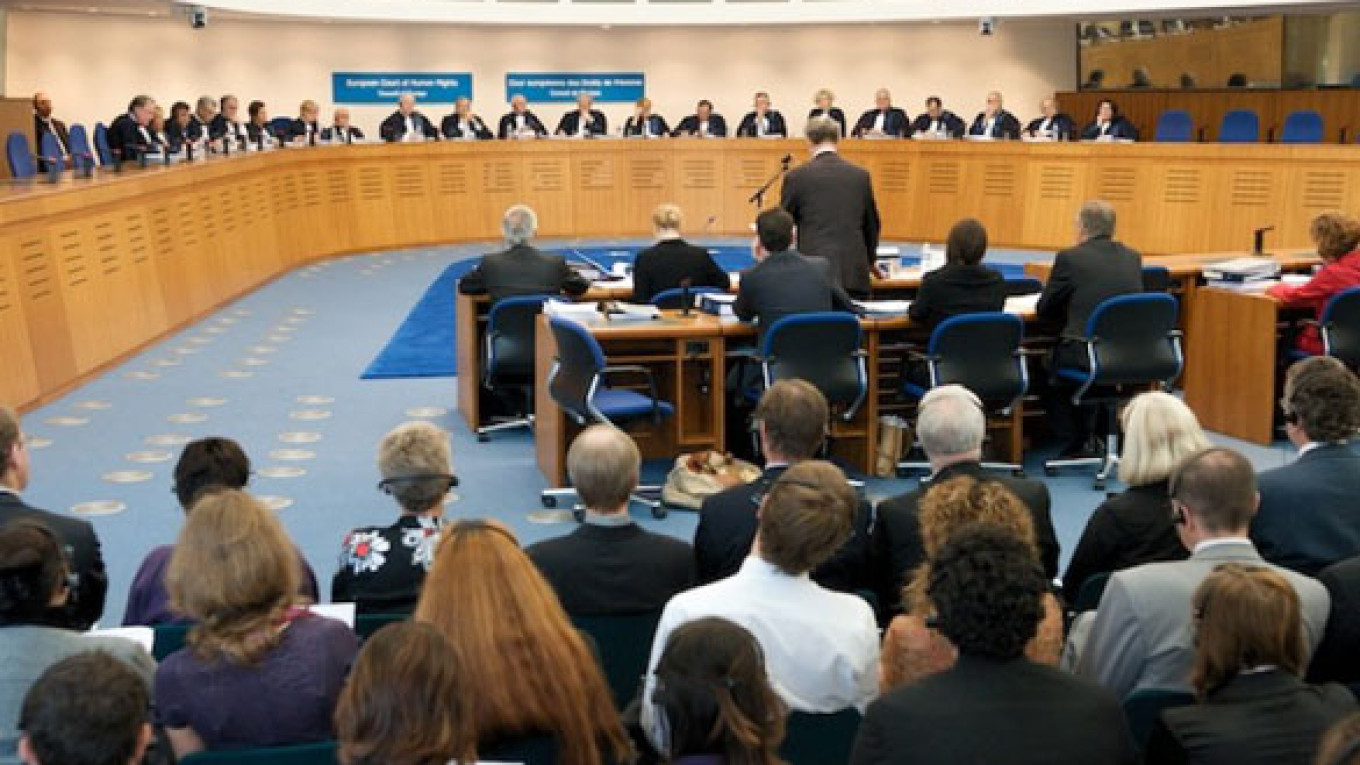PARIS — The European Court of Human Rights said Monday that it cannot rule on whether or not Russia properly investigated a World War II massacre of thousands of Polish officers at Katyn because it has not received vital documents from Moscow to properly judge the case.
The court found Russia in violation of its commitments to the European Convention on Human Rights.
Fifteen Poles have complained that Russia failed to hold a proper investigation into the 1940 killing by the Soviet secret police of some 22,000 Polish officers and intellectuals in the Katyn forest and other places.
Russia discontinued its investigation in 2004. It refused to make its reasoning available to the relatives or to the European court.
In Moscow, Russia's Justice Ministry reported Monday's ruling without comment. But Poland's government said the case shows Russia's disregard for international law.
"It is not the first time that Russia has a problem with following the standards of a European state of law," Justice Minister Jaroslaw Gowin said on Polish TVN24.
One of the 15 Polish relatives, Ryszard Adamczyk, said officials in Russia have "their own laws, they disregard international laws."
In Moscow, Leonid Slutsky, the chairman of the committee in charge of relations with the former Soviet nations in the lower house of parliament, said the European Court of Human Rights had tried to walk a middle line in its ruling.
"The judges apparently sought to partly satisfy the Polish party without hurting Russia too much," Slutsky said, according to the RIA Novosti news agency.
He said the issue requires deeper consideration, adding that he wasn't sure that the judges had studied all materials available.
Slutsky said the court ruling is unlikely to have any impact on Russian-Polish ties, saying that while the issue remains an irritant, relations between Moscow and Warsaw are gradually becoming more constructive thanks to economic cooperation.
A Message from The Moscow Times:
Dear readers,
We are facing unprecedented challenges. Russia's Prosecutor General's Office has designated The Moscow Times as an "undesirable" organization, criminalizing our work and putting our staff at risk of prosecution. This follows our earlier unjust labeling as a "foreign agent."
These actions are direct attempts to silence independent journalism in Russia. The authorities claim our work "discredits the decisions of the Russian leadership." We see things differently: we strive to provide accurate, unbiased reporting on Russia.
We, the journalists of The Moscow Times, refuse to be silenced. But to continue our work, we need your help.
Your support, no matter how small, makes a world of difference. If you can, please support us monthly starting from just $2. It's quick to set up, and every contribution makes a significant impact.
By supporting The Moscow Times, you're defending open, independent journalism in the face of repression. Thank you for standing with us.
Remind me later.


